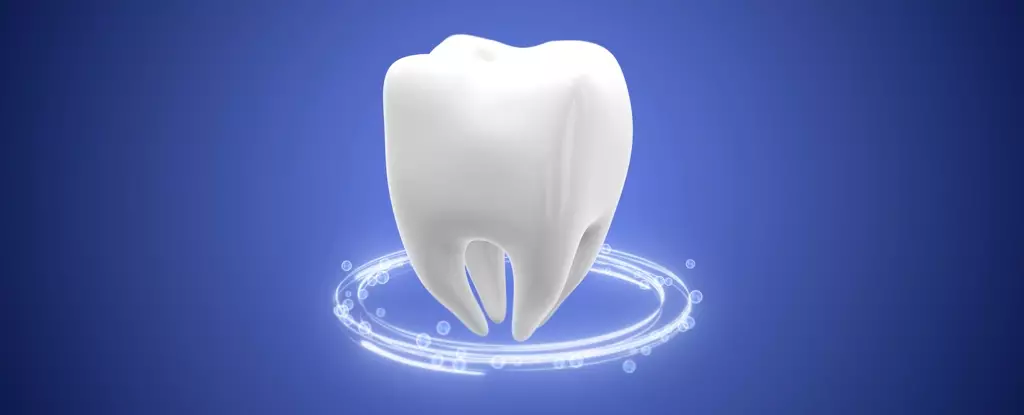The vision of growing teeth in a laboratory might evoke images best suited for a dystopian thriller—where science spirals out of control and humanity pays the price. However, the emerging research from institutions like King’s College London and Imperial College London reveals a promising shift in dental health that transcends mere horror fiction. The introduction of a biocompatible hydrogel that enhances cellular communication signals a turning point in regenerative dentistry, providing the potential to naturally replace damaged or decayed teeth. While skepticism is natural, it’s crucial to recognize the progressive implications of such innovations; they could very well mark an end to invasive procedures that have become all too commonplace.
The Science Behind Regeneration
At the core of this groundbreaking development is a hydrogel designed to replicate the intricate signaling processes that occur within the human body. By fostering communication between dental epithelial and mesenchymal cells—sourced from mouse embryos—researchers aim to unlock a natural way for teeth to regenerate, akin to how skin heals from cuts. This biologically driven approach to tooth repair has the potential to lead to teeth that are stronger and more integrated with our jaw structure than conventional fillings or implants, thereby lessening the risk of rejection. The careful, gradual release of cellular signals that this new method allows stands in stark contrast to earlier attempts that misfired by administering signals all at once, underscoring a shift towards a more nuanced understanding of human biology.
The Impediments to Real-World Application
While these advancements offer hopes of a dental utopia, significant hurdles remain before lab-grown teeth can grace our mouths. The challenge lies not merely in fostering tooth growth in vitro but in successfully transferring this environment into the human oral cavity. Techniques being evaluated include cell transplantation and the use of fully developed lab-grown teeth, both rife with their complexities and ethics. The ambition here is laudable, yet one cannot overlook the ethical implications that come with manipulating biological systems, potentially leading us to a future where nature’s design is subject to human whims.
Nature as Our Guide
Interestingly, various species in the animal kingdom have evolved mechanisms for tooth regeneration. While humans have not developed such capabilities, the study of these organisms can provide invaluable insights. This exploration into natural regeneration offers a dual advantage: not only could it guide advancements in dental treatments, but it also poses ethical questions about our current practices. In a world where many humans depend on artificial solutions for tooth decay, one must ponder whether we are increasingly distancing ourselves from our own biological heritage—an alarming trajectory that merits consideration.
Beyond Aesthetics: The Wider Impact of Oral Health
The fabric of oral health extends far beyond the aesthetic of a perfect smile; it intertwines with overall physical well-being. Research suggests a myriad of health issues can stem from compromised oral health, such as cardiovascular diseases and diabetes. The exploration of advanced dental solutions does not merely aim to cater to those who neglect oral hygiene; it has the potential to address widespread health disparities caused by missing teeth and poor dental care access. In this sense, the strides made in regenerative dentistry could be life-changing for many, expanding the horizon of what’s possible in healthcare.
Looking Forward: Triumphant or Treacherous?
As we delve deeper into the intricacies of lab-grown teeth, the conversation will inevitably evolve. Will these innovations herald a new era of dental care, or will they come accompanied by unintended consequences? With experts like Ana Angelova Volponi advocating for the integration of innovative techniques, the future of dental health looks luminous but fraught with challenges. The idealistic vision of self-repairing teeth is tantalizing, but it simultaneously compels us to scrutinize the cost of progress. As we balance the scales between technological marvels and ethical considerations, the pursuit of enhanced health must not override our connection to the natural world.


Leave a Reply